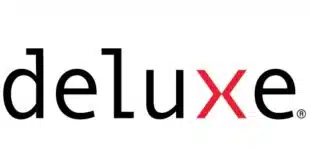The message this week from the top brass at American Express Co. is: Times are bad, but no worse at AmEx than elsewhere in the payments industry. American Express, the third-largest payment card network, is still making money, though a lot less of it: $172 million in the fourth quarter, off 79% from $831 million a year earlier. Results included a $273 million after-tax charge for severance and other expenses, mostly for staff reductions. “I believe and I think most of you would agree that this is one of the most difficult operating environments we've seen in decades,” AmEx chairman and chief executive Kenneth I. Chenault said at an analysts' conference call late Monday after the company reported fourth-quarter results. New York City-based AmEx's operating results reflect the recent charge-volume declines experienced by the nation's three largest banks' credit card portfolios (Digital Transactions News, Jan. 19). U.S. card-billed business fell 8% to $112.7 billion from $123.0 billion in 2007's fourth quarter. Average U.S. cardholder spending during the quarter on so-called basic cards issued directly by AmEx declined 12% to $2,948 from $3,352 in the year-earlier quarter. Card-billed business outside the U.S. fell 12%. In all, global card-billed business dropped 10% to $160.5 billion in the fourth quarter from $177.5 billion in the year-earlier period. Though AmEx historically was an exclusive travel-and-entertainment card issuer, retail and other non-T&E spending now accounts for 74% of the company's U.S. billed business. Non-T&E U.S. charges fell 6% in the fourth quarter while the more discretionary T&E spending declined 10%. Airline charge volume, which accounted for 8% of U.S. volume during the quarter, decreased 10% due to declines of 9% in the average ticket and 1% in transactions. “As you've seen from recent headlines, this slowdown was more pronounced among high-end retailers and throughout the travel sector as our cardmembers cut back on discretionary spending,” Chenault said. Discount revenue, that all-important revenue stream AmEx gets from cardholder spending on its merchant network, fell 11% globally to $3.47 billion in the quarter from $3.91 billion in 2007's fourth quarter. If there was a bright side, it was that merchant pricing held steady. The average discount rate slipped only 1 basis point to 2.53% from 2.54% in 2007's last quarter. Fee income also held up. “We are not cutting our premium prices in order to generate business volumes, and I believe that this is a very good indication of the underlying strength of our franchise,” Chenault said. Despite cutting marketing and related expenses by 31% in the quarter, AmEx still managed to increase its U.S. card base by 3% to 54 million and 13% outside the U.S. to 38.4 million. The total card count thus grew 7% to 92.4 million from 86.4 million at 2007's end. AmEx-branded cards issued by the company's Global Network Services bank partners grew 22% from 20.3 million in 2007 to 24.8 million in 2008. GNS charge volume, however, was unchanged from 2007's fourth quarter at $16 billion. For the year, AmEx recorded $15 billion in discount revenue, up 3% from $14.6 billion in 2007. U.S. card-billed business grew 3% to $471.1 billion from $459.3 billion in the prior year. Volume outside the U.S. grew 13% to $212.2 billion, bringing the worldwide total to $683.3 billion, up 6% from $647.3 billion in 2007. To boost its capital, AmEx this month changed its corporate structure to become a bank- holding company and sold $3.39 billion in preferred stock to the U.S. Treasury through the government's Troubled Asset Relief Program, or TARP, commonly called the bailout program. The net chargeoff rate in AmEx's credit card portfolio rose to 4.7% of managed receivables from 2.8% at the end of 2007.
Check Also
Zoho Launches Zoho Payments In the U.S. Market
Zoho Corp., an Indian multinational software company, is launching Zoho Payments in the United States. …





